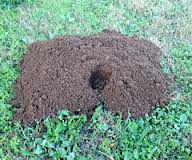We often picture our gardens as a serene and harmonious ecosystem, but in reality, they can be battlegrounds where plants face threats from various pests. Instead of reaching for chemical pesticides, consider unleashing an army of beneficial nematodes. These microscopic warriors target garden pests without harming plants or beneficial insects. Let’s dive into the world of these helpful creatures.
What are Beneficial Nematodes?
Beneficial nematodes, also known as entomopathogenic nematodes, are microscopic, non-segmented roundworms. Unlike plant-parasitic nematodes that harm plants, these nematodes seek out and kill soil-borne pests.
How Do They Work?
1. Seeking the Host
Beneficial nematodes actively hunt for over 200 species of the larvae of pest insects. They do this by sensing the heat and carbon dioxide emitted by these pests.
2. Invasion and Control
Once a target is found, the nematode enters the pest through natural body openings. Inside, they release bacteria that quickly multiply and kill the host within 24-48 hours.
3. Reproduction
After the pest is dead, the nematodes consume the bacteria and the host’s tissues, multiplying in the process. Mature nematodes then leave the dead pest in search of new hosts.
Benefits of Using Beneficial Nematodes
1. Natural and Safe
Being natural predators, they don’t introduce toxins into your garden, making them safe for plants, humans, and beneficial insects.
2. Effective Against Many Pests
They target pests like Japanese beetles, cutworms, ticks, termites, and many others, often more effectively than chemical solutions.
3. Resilient
Beneficial nematodes are capable of surviving in different soil types and temperatures, making them versatile for various climates and gardens.
Introducing Nematodes to Your Garden
1. Choose the Right Species
Different nematodes target different pests. Research the specific pests in your garden and select the right nematode species accordingly.
2. Proper Application
Nematodes are usually sold in a suspended solution, which can be mixed with water and sprayed onto affected areas. The soil should be moist during application.
3. Regular Monitoring
While nematodes can effectively reduce pest populations, regular garden monitoring is essential to determine if reapplication or other interventions are needed.
Conclusion
Beneficial nematodes offer an eco-friendly and efficient solution to many common garden pests. By understanding and harnessing their power, gardeners can maintain beautiful and healthy gardens without resorting to harmful chemicals. As we strive for more sustainable gardening practices, turning to nature’s own solutions like nematodes can make a significant difference.



0 Comments